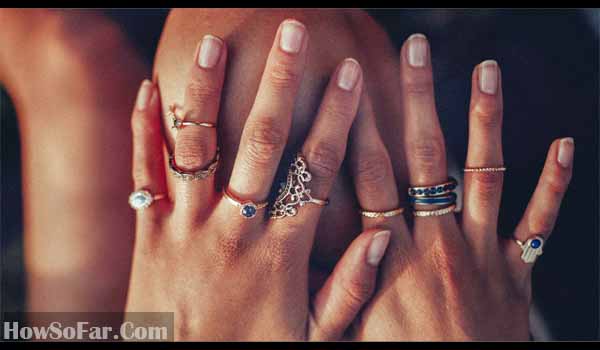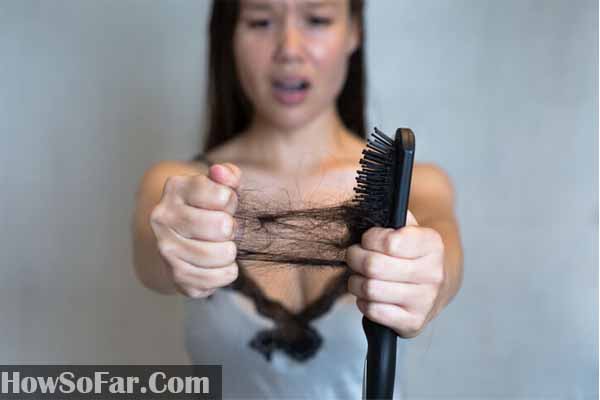Discover the truth about achieving nail growth during pregnancy. Learn effective tips and techniques to enhance nail health, including natural remedies and positive habits. Find out if it’s possible to achieve stronger, healthier nails during pregnancy and how to do it. Read on to empower your nails and enhance your pregnancy experience.
As a woman, you might have noticed that your nails grow longer and stronger during pregnancy. This is a common phenomenon that many pregnant women experience. In this article, we will explore why this happens and provide tips on how to care for your nails during pregnancy.
What Causes Nail Growth During Pregnancy?
The increased levels of hormones in a woman’s body during pregnancy are responsible for the growth of nails. Specifically, the hormone estrogen stimulates the growth of nails, hair, and skin. As a result, many women notice that their nails grow longer and faster during pregnancy.
In addition to estrogen, the increased blood flow to a woman’s body during pregnancy also plays a role in nail growth during pregnancy. This increased blood flow delivers more nutrients to the nail bed, which promotes faster and healthier nail growth. Hormonal shifts during pregnancy can affect the rate and quality of nail growth.
Tips for Caring For Your Nails During Pregnancy:
1. Keep Your Nails Clean and Dry
Pregnancy can make you more susceptible to fungal infections, which can lead to nail discoloration and thickness. To prevent this, make sure to keep your nails clean and dry. Dry your nails thoroughly after washing your hands or taking a shower, and avoid wearing damp gloves or socks.
2. Moisturize Your Nails and Cuticles
During pregnancy, your body may experience dry skin, including your nails and cuticles. To prevent dryness and cracking, moisturize your nails and cuticles with a gentle lotion or oil. This will keep them healthy and prevent them from becoming brittle.
3. Avoid Harsh Chemicals
Harsh chemicals, such as those found in nail polish remover and some nail products, can be harmful to both you and your baby. To avoid exposure to these chemicals, opt for natural and non-toxic nail products, and use a gentle, acetone-free nail polish remover.
4. Trim Your Nails Regularly
As your nails grow longer, it’s important to trim them regularly to prevent them from becoming too long and breaking. Use a sharp nail clipper to trim your nails straight across, and file them gently to smooth any rough edges. Nail growth during pregnancy is just one of many physical changes that women may experience during this time.
It is important for expectant mothers to practice self-care and pay attention to any changes in their bodies, including changes in nail growth during pregnancy.
5. Eat a Healthy Diet
Eating a healthy diet rich in vitamins and minerals can promote nail growth and overall nail health. Foods such as leafy greens, nuts, and lean protein are all great choices for promoting healthy nail growth. Maintaining a healthy diet and staying hydrated can also support healthy nail growth during pregnancy. While nail growth during pregnancy is typically harmless, any sudden changes should be discussed with a healthcare provider. Prenatal vitamins, which are often recommended during pregnancy, may also impact nail growth.
During pregnancy, many women face the question: continue doing their favorite beauty treatments or postpone them until “better times”? And if the ban on cutting hair is a popular myth and does not pose any danger to the woman’s body and the unborn baby, then with acrylic nails it’s not so simple. Let’s see what can go wrong! While nail growth during pregnancy is generally a positive change, some women may experience discomfort or pain in their nails due to the increased pressure on their fingers and toes. It is important for expectant mothers to take care when handling sharp objects or harsh chemicals to protect their nails during pregnancy.

Dispute: What Is Acrylic?
In nail salons, acrylic nail extensions are popular today. At the same time, experts understand acrylic as polymers created on the basis of acrylic and methacrylic acids. The acrylic fiber was first produced by the American chemical company DuPont in 1952.
Today, these polymers are used in many areas of human life: they are used to produce plumbing for the home and home textiles, wardrobe items, and construction “little things” – sealants, putties, primers, and paints. There was a place for the use of acrylic in dentistry – it is used in the creation of dentures. This substance was also useful in the nail art industry. Acrylic proved to be a durable and comfortable material for nail extensions.
Fact!
In the nail service, the acrylic powder is mixed with a liquid monomer, and the resulting mixture is applied to natural nails, forming artificial nails of the desired shape and length from it. During the procedure, special forms are used.
Is it Safe for Pregnant Women To Get Nail Extensions?
When a woman is in position, even the most minor procedures are of great importance. You need to approach everything with caution because the health and life of not only the mother but also the unborn baby depend on it.
Given the possible risks, many experts do not recommend doing nail extensions in the first three months of pregnancy, since it is during this period that the organs and systems of the fetus are laid. Some substances used during the procedure can cause hypersensitivity reactions.
So, when creating a coating on the nails, a chemical compound called formaldehyde is used – you can recognize it by its sharp sweet smell. The Agency for Toxic Substances and Disease Registry warns that formaldehyde is considered a toxic substance and can have a negative impact on the genome, organs of the respiratory and nervous system, reproductive functions of the body, as well as human vision and skin. In a pregnant woman, who is by definition vulnerable, even a single exposure to this substance can cause nausea and headaches, up to and including loss of consciousness.
At the same time, from the second trimester of pregnancy, nail extension is considered relatively safe if the procedure is carried out by an experienced and qualified master in specially created conditions for this.
On a note!
Considering the safety of acrylic nail extensions, it should be understood that not only this substance is used during the procedure, but also all kinds of gels, liquids and powders. In other words, it is always a complex effect of various chemicals.
What Are The Risks Of Acrylic Nail Extensions?
At the moment, there are no scientific studies stating that acrylic nail extensions can lead to pregnancy complications. But at the same time, it should be noted that this topic is still little studied. And there are moments that cause alertness among experts:
- During the procedure, acrylic is fixed on natural nails. Whether the correct technique for using the material is followed depends on the master. But in any case, the client is not immune from the risk of getting a bacterial or fungal infection in the salon.
- In the cabin, acrylic from different polymers can be used. U experts. S. _ The Food and Drug Administration compared ethyl methacrylate and methyl methacrylate polymers. Both materials have a similar composition and contain potentially hazardous substances. However, ethyl methacrylate is considered safer. Methyl methacrylate is often found in acrylics from Chinese and Korean manufacturers, while ethyl methacrylate is found predominantly in products from European brands.
- With the growth of artificial nails, there is a risk of damaging natural nails, since the “excess” coating inhibits their normal growth. In places where the nail plates are damaged, bacteria and fungus can spread.
- Some substances that are used in preparation for extensions and in creating coatings on the nails can pose a threat to the unborn child. First of all, we are talking about such components as toluene, formaldehyde, dibutyl phthalate, triphenyl phosphate, and hydroxyanisole. Research has linked them to learning difficulties and disruption of normal development.
- Acetone deserves special mention, which can be used as a degreaser during nail treatment. There are studies that draw parallels between this substance and an increased risk of abortion in women.
- Acrylic nails can be extended only if natural nails are healthy, dense, and strong. You can not carry out the procedure for diseases of the nails and skin, cuts, scratches, and open wounds at the site of exposure. If the cuticle is damaged and inflamed, it should be treated first.
Any materials used during the procedure may cause allergy manifestations (including if no negative reactions were observed before), the appearance of rashes, cough, or rhinitis.
On a note!
The substance methyl methacrylate is banned in the US and European countries due to possible toxic effects on the fetus. Ethyl methacrylate is considered less harmful, but it cannot be called absolutely safe. It is believed that in materials for building up and creating a coating on the nails, it is used in a minimum concentration that is not enough to harm the mother and unborn child.

How to Protect Yourself and The Unborn Baby During The Procedure?
Before deciding on nail extensions, a pregnant woman should definitely consult a doctor. In position, the susceptibility of a woman’s body to external negative effects increases significantly, which means that the risk of side effects increases. In addition, no matter how small the risk of the influence of building materials on the fetus, it still remains. Therefore, it is better to abandon the procedure.
But if for some reason this is not possible, the following recommendations should be considered:
- The procedure should be carried out in a specially equipped room with good lighting and an effective ventilation system.
- The ideal time to record is early in the morning. Compared to evening hours, there are fewer potentially harmful fumes in the cabin at this time.
- Building materials must be of high quality. Priority to those that are acceptable to use during a woman’s pregnancy. Cheap fakes from unknown manufacturers can be harmful to the expectant mother and her baby.
- During the procedure, do not inhale harmful fumes. A pregnant woman, just like a master, should wear a mask. It is advisable to take frequent breaks so that you can get a breath of fresh air.
- After completing the procedure, wash your hands thoroughly with soap and water to remove chemicals that may remain on the skin of the hands and nails.
- If you become ill during the procedure, you should immediately stop it and refuse to receive the service.
Conclusion:
Nail growth during pregnancy is a common phenomenon that many women experience due to increased levels of estrogen and blood flow. To care for your nails during pregnancy, make sure to keep them clean and dry, moisturize them regularly, avoid harsh chemicals, trim them regularly, and eat a healthy diet. By following these tips, you can ensure that your nails stay healthy and strong throughout your pregnancy.
Also Visit: Interesting Games For The Communicative Development of Children


